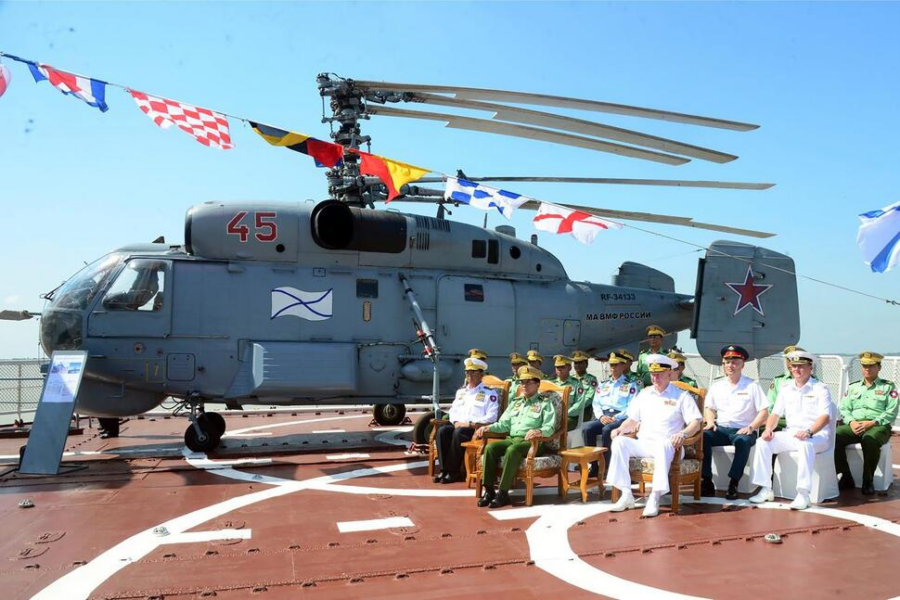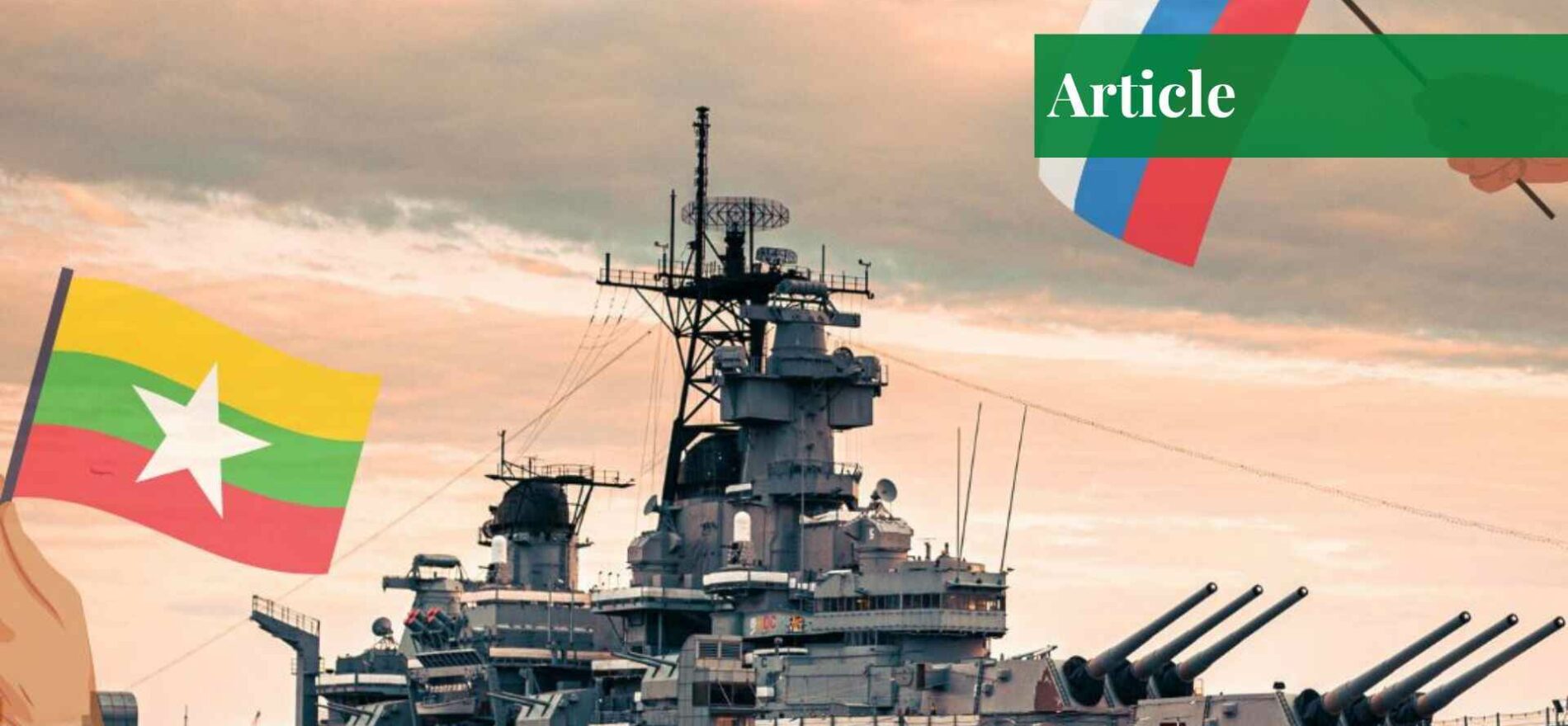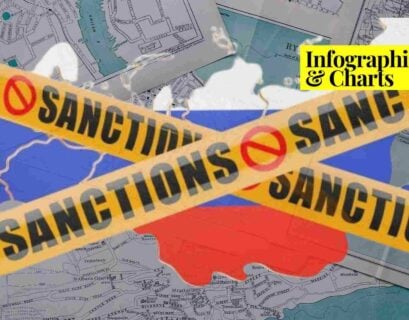In the vastness of global geopolitics, pursued by states’ relentless capacities for forging alliances and strategic partnerships, the maritime collaboration between Russia and Myanmar materializes due to the dynamic interplay of diplomacy, history, and shared strategic interests.
Reflecting only the beginning of perhaps a long journey that has set sail as a peek into their respective geopolitical paths, it also highlights the significance of such a meticulous bilateral relationship that has emerged in an ever-changing landscape.
Diplomatic Relations Between Russia and Myanmar
Russia and Myanmar’s diplomatic ties have evolved ever so steadily over decades, often being characterized by features of political and economic cooperation as well as strategic engagement. Myanmar, located between South Asia and Southeast Asia has often boasted of its complex geopolitical environment impacted by history, along with regional forces.
Russia brings forth a global perspective towards its external international affairs with efforts to make its presence and influence known in various regions around the world. In these circumstances, the bilateral relations between the two previously mentioned states hold a certain weight in the international political realm, specifically within the Asia-Pacific region.
While relations date back to Myanmar’s (Burma) independence from its colonial overlords, the Union of Soviet Socialist Republics (USSR); primary ties of notice have only begun taking place since the 2010s. Throughout this period, both states have inched closer together with the Burmese military’s fondness of Russian-made military equipment and arms over those manufactured in China in part due to its growing suspicion towards China in fuelling ethnic tensions within the state of Myanmar.
Relations between Russia and Myanmar have often been dictated by military and strategic interests. Burmese military officers, more specifically belonging to the Burmese Air Force, gained their post-graduate education from Russian institutions. While met with scrutiny, the impact of Russian arms and influence in Myanmar has brought the two sovereign entities inexplicably closer and has ignited the existence of a relationship that is more likely to collaborate proactively on future activities.
Since the coup de etat by the Myanmar military at the start of the COVID-19 pandemic, both Russia and Myanmar have found themselves closer than ever before, while still being met with international discouragement and the threat of Western sanctions.
In 2021, Russia was the only state to acknowledge the coup, and at the same time, Myanmar would be the only member of ASEAN (Association of Southeast Asian Nations) showing direct support for Russia’s invasion while also sending military aid. Such mutual validation of each other’s activities brings us to the situation today.
Both states no longer find themselves within the constraints of diplomatic or military relations but now extend to nuclear technology, entrepreneurial activities as well and growing tourism.

MARUMEX Naval Exercise
On 7th November of this year, Myanmar’s current military dictator met with Russia’s Naval Chief as the states marked the beginning of their first-ever joint maritime exercises on the border of Myanmar’s Andaman Coast. The Russian commander-in-chief welcomed the General on board their vessel while sitting through further briefings on the capabilities and capacity of Russian weapons along with an anti-submarine helicopter as well as the installations on submarines of modern systems.
Russia and Myanmar had their first maritime security exercise also known as MARUMEX which involved naval ships and aircraft about 85 nautical miles or 157 km from the city of Myeik. The exercises themselves have been focused on the “prevention of air, water surface and underwater gangers and maritime security measures”. Australia, the United States, and Japan have boycotted these events.
Myanmar claims these activities would allow the state to strengthen itself against ongoing acts of terrorism from domestic resistance groups. At the same time, Russia allegedly seeks to strengthen its response to occurrences of ambushes in the war with Ukraine. The growing relations between the two come at a time when Myanmar faces increasing internal political and economic pressure, viewing Russia as a source of fuel to counter the foreign currency shortage due to Western sanctions. While Russia faces the continuous threats of Western sanctions, it views Myanmar as the key purchaser of Russian goods, arms, and other resources.
These activities in the Andaman Sea bring forth various matters of contention. The Andaman Sea is a strategic waterway that connects the Indian Ocean towards the Bay of Bengal while being close to the Strait of Malacca, a strait which a large majority of the world’s trade passes through making it one of the busiest pathways in the world.
As mentioned before, the purpose of the activities has often been stated as the need to defend against any oncoming threats which includes threats from the land, sea, and air. While this may seem like the case, Russia has been looking into expanding its presence in the Andaman Sea for a while. In addition to its strategic benefits, the Andaman Sea has also been regarded as an important shipping lane specifically for the distribution of gas, oil, and various other goods.
While Russia remains one of the largest exporters of natural gas, access to the Andaman Sea means a direct path towards markets in the Middle East and Asia. Eventually, Russia’s access to the Andaman Sea is crucial to its strategy of increasing its influence specifically in the Indo-Pacific region. Additionally in the upcoming years, Russia’s foreign policy specifically towards these regions is going to be an integral part of its future endeavors.
These activities caught the attention of international players all around resulting in the immediate response of Chinese and Pakistani naval fleets holding week-long exercises in the Arabian Sea. In the following days, the United States Secretary of State Antony Blinken along with Lloyd Austin, the Defence Secretary, met up with their Indian counterparts holding a series of defense talks in the city of New Delhi and resulting in the release of a joint statement, voicing their concerns towards the ongoing war in Ukraine while skilfully mentioning their commitment to safeguarding a ‘free and open Indo-Pacific’. It should be noted that this specific incident was followed by Chinese President Xi Jinping’s recent visit to San Francisco to rehash military ties.
Conclusion
In the shifting tides that are the game of international relations and world politics, Myanmar and Russia’s maritime exercises represent not only a union of naval capabilities but also a shared commitment to managing the complexity of global geopolitics.
As these two countries sail into an uncertain future together, the echoes of their collaborative maritime endeavors reverberate far beyond naval manoeuvers, creating a vivid portrayal of diplomatic endurance, strategic vision, and the eternal hunt for synergy in an ever-changing geo-political environment. The ripple effects of these coordinated marine efforts stretch into the stronger currents of stability in the region as well as global influence providing a tantalising peek of the waves yet to be charted in the story that would create itself in this journey.
If you want to submit your articles, research papers, and book reviews, please check the Submissions page.
The views and opinions expressed in this article/paper are the author’s own and do not necessarily reflect the editorial position of Paradigm Shift.


















